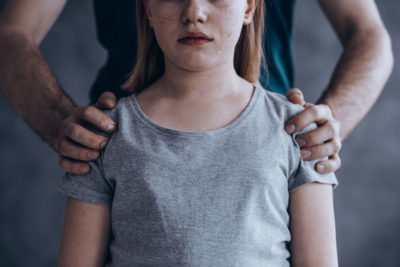Every April we observe National Child Abuse Prevention Month, a time dedicated to raising public awareness and empowering all survivors of childhood maltreatment. Institutionalized child abuse is one area of abuse that plagues thousands of child and adult survivors every year. Educating yourself and lending a voice to these often voiceless victims of abuse can promote greater awareness, and amplify the need for change in the systems that enable abusers to take advantage of children.
The Dynamics of Institutional Abuse
Insitutionalized child abuse is incredibly complex, as psychological trauma is often tied with the actual physical or sexual abuse. Victims are manipulated into believing their perpetrators care for them, when in actuality, these perpetrators are committing illegal sexual acts. The process of persuading victims to engage in sexual contact is known as grooming. Once a victim is targeted, the perpetrator will attempt to isolate their victim and make them feel comfortable, even loved. Grooming behaviors may include complimenting the victim, hugging or inappropriately touching the victim, contacting the victim on their phone or online, or insisting that they spend alone time together. The abuser may rationalize the physical or sexual behavior as normal, or may threaten the victim into participating.
Institutional abusers are typically people in positions of power and authority. They can work in schools, participate in sports, serve as religious figures, or play active roles in community organizations. One of the major issues of child abuse in these institutional environments is that children are expected to respect authority figures. Predators use this to their advantage, believing that their victims will do what is asked of them without question. This power dynamic is what prevents many child abuse victims from stepping forward to disclose the abuse when it happens.
The Aftermath of Institutional Abuse
The unfortunate reality is that many CSA survivors wait until later in life to share their experience. This can be attributed to a number of reasons, including not knowing that their experiences were considered abuse, or suppressing traumatic memories from childhood. Nevertheless, child sexual trauma can affect a person’s entire life. Stepping forward to share personal stories of abuse can be extremely difficult for survivors, as they are often forced to relive their trauma. Post-traumatic stress disorder (PTSD) is one of the most common long-term effects child abuse survivors struggle with. Survivors may also have a difficult time trusting people, or engaging in intimate or sexual relationships as adults.
Because it can take decades for survivors to come forward and discuss their childhood trauma, it can also be extremely difficult to seek justice against perpetrators and the institutions where the abuse occurred. Major institutions, like universities and churches, have power and money to push abuse cases aside and suppress victims’ voices. In doing so, these institutions are also protecting predators and, inadvertently, giving these predators more opportunities to harm children. Statistics show that institutional abusers, on average, may abuse at least 150 victims.
In recent years, however, we’ve seen legislation shift in favor of child abuse victims. Different states, including New York, have extended the statute of limitations for survivors to file claims against their abusers. In lawsuits against the Catholic Church, thousands of survivors are receiving compensation for the horrible crimes committed against them. However, this may only seem like a shred of justice for the trauma many abuse survivors had to endure as children.
What We Can Do Moving Forward
Institutional abuse is as much a human issue as it is a systemic issue. It’s important to stop victim blaming and invalidating survivor stories. Instead, we should be encouraging survivors to come forward without feeling ashamed of their experiences. In the same vein, we need to hold the institutions accountable for enabling predators for harming children, and bystanders for not doing their due diligence to get victims the help they deserve. Making an effort to educate yourself and raise awareness in your community can help highlight the important issues of those who are silenced. Let’s stand together with survivors of institutionalized child abuse this Child Abuse Prevention Month, and all year round.

